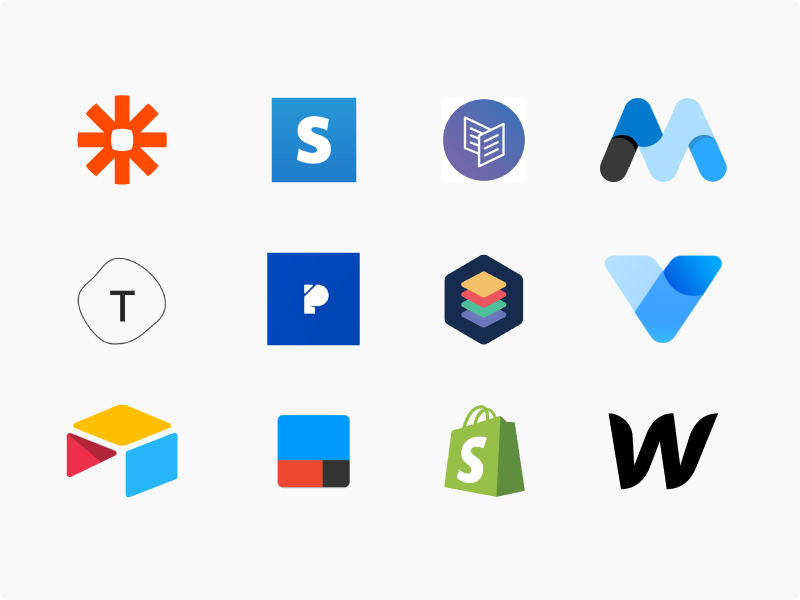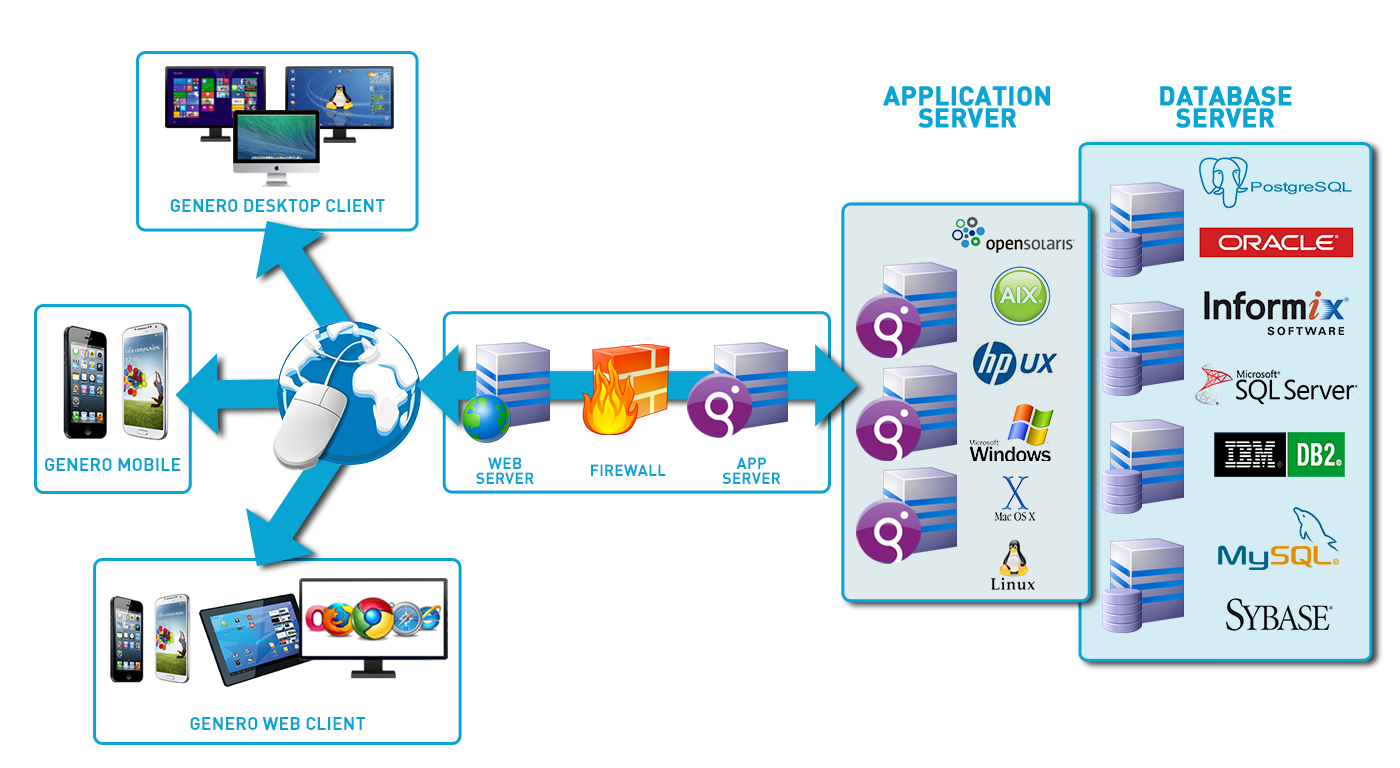Improve Open Platform Database Development with No-Code Advancement Operatings Systems
Improve Open Platform Database Development with No-Code Advancement Operatings Systems
Blog Article
Discovering the Advantages of Scalable Databases That Require No Coding Skills for Effective Data Management Solutions
The emergence of scalable data sources that get rid of the requirement for coding abilities provides a transformative chance for organizations seeking efficient data administration options. As we take into consideration the effects of such advancements, it becomes essential to take a look at just how they can improve the landscape of information monitoring and drive lasting development in an affordable atmosphere.
Improved Availability for Individuals
Improved availability for individuals is an essential facet of scalable data sources, making sure that information administration systems are straightforward and instinctive. In an age where data-driven decisions are critical, accessibility permits a broader variety of users, including those without considerable technological expertise, to involve with database systems efficiently. This democratization of data access promotes boosted cooperation throughout departments, empowering staff members to draw out understandings and make notified decisions.
User-friendly user interfaces, such as visual information and drag-and-drop functions depiction, simplify intricate information interactions. These enhancements lower the learning curve connected with typical data source management, enabling customers to concentrate on leveraging information instead of facing technical complexities. In addition, scalable data sources commonly integrate real-time analytics and personalized control panels, providing individuals with instant understandings tailored to their particular requirements.

Cost-Effectiveness and Source Financial Savings
Efficient information administration not only rests on access however also on cost-effectiveness and source financial savings. Scalable data sources designed for customers without any coding abilities considerably reduce economic concerns generally connected with standard database management systems. By getting rid of the need for specialized programs proficiency, organizations can allot their sources more successfully, concentrating funds on core business activities as opposed to comprehensive training or working with experienced personnel.
In addition, these databases frequently utilize cloud-based services, which even more minimize expenses related to equipment and upkeep. Organizations can scale their data source services according to their demands, avoiding the expenses incurred from over-provisioning sources. This versatility means companies can adjust to changing demands without sustaining unneeded prices, causing substantial long-term savings.
Additionally, user-friendly interfaces simplify information access and monitoring procedures, decreasing the moment invested in management tasks. This efficiency equates right into labor cost financial savings, enabling groups to concentrate on calculated efforts instead than routine maintenance. In general, adopting scalable databases that call for no coding abilities cultivates a much more economical technique to information administration, making it possible for companies to optimize their resources while maintaining high levels of functional effectiveness.
Improved Partnership Across Teams

Additionally, scalable data sources facilitate seamless communication amongst staff member. With straightforward interfaces that require no coding skills, workers can quickly develop, change, and share records or dashboards tailored to their specific requirements. This democratization of data equips non-technical individuals to add understandings, boosting the joint setting.
Additionally, these databases support concurrent access, allowing multiple individuals to work with the very same dataset simultaneously. get redirected here This function improves efficiency, as groups can involve in joint information analysis without the risk of version control problems. The capability to leave remarks or notes directly within the database further promotes discussion and makes clear data interpretations.
Streamlined Data Management Processes
In today's data-driven environment, organizations recognize the need of structured information management processes to make best use of efficiency and accuracy. By leveraging scalable data sources that require no coding abilities, organizations can streamline their data handling and decrease the intricacies typically related to conventional data source systems. This availability empowers non-technical customers to involve directly with information, assisting in quicker decision-making and reducing dependence on specialized IT workers.
Structured data management procedures enhance operations by automating routine jobs such as data entrance, validation, and coverage. Automated information combination ensures that details from various resources is aggregated effortlessly, eliminating silos and promoting an unified sight of crucial organization metrics (no-code). Additionally, straightforward interfaces permit personnel to control information easily, allowing them to create insights that drive critical initiatives without the requirement for considerable training.
This effectiveness not just increases operational processes however additionally minimizes the potential for human mistake, making certain that information remains reliable and precise. Inevitably, streamlined data administration procedures via scalable data sources lead to enhanced efficiency, permitting organizations to concentrate on core activities while making sure that their information monitoring techniques are reliable and reliable.
Scalability for Growing Organizations

For expanding business, the capacity to scale up or down is essential. A scalable data source can manage an increase of information produced from brand-new consumers, items, or services, making sure that company operations continue to be undisturbed. These data sources offer the capability to manage peak tons effectively, which is essential during durations of fast growth or seasonal spikes.
In addition, numerous scalable database options are developed with user-friendly user interfaces that require no coding abilities, encouraging non-technical staff to take care of data effectively (no-code). This democratization of information management permits companies to assign resources tactically and decrease dependency on specialized IT workers
Ultimately, embracing a scalable data source not only boosts operational effectiveness yet likewise cultivates an environment where services can innovate additional info and progress without the restrictions of typical database systems. This versatility placements organizations for long-lasting success in today's affordable landscape.
Conclusion
Finally, scalable data sources that require no coding skills offer substantial advantages for efficient data administration. These systems boost accessibility for non-technical individuals, minimize functional costs, and promote partnership across groups. By streamlining information administration processes and using scalability for expanding organizations, Visit Your URL such services make it possible for companies to adapt to transforming demands effectively. Ultimately, the fostering of these easy to use databases fosters advancement and placements businesses for long-term success in a dynamic environment.
Improved ease of access for users is a vital aspect of scalable data sources, making certain that information management systems are intuitive and straightforward.User-friendly user interfaces, such as drag-and-drop attributes and visual data representation, streamline complicated data communications. In general, adopting scalable data sources that need no coding skills cultivates a much more cost-effective strategy to data management, making it possible for organizations to optimize their resources while maintaining high levels of operational performance.
By leveraging scalable databases that call for no coding abilities, businesses can streamline their data handling and lower the complexities generally linked with conventional data source systems - no-code.Streamlined information administration procedures improve workflow by automating regular jobs such as information entrance, validation, and coverage
Report this page